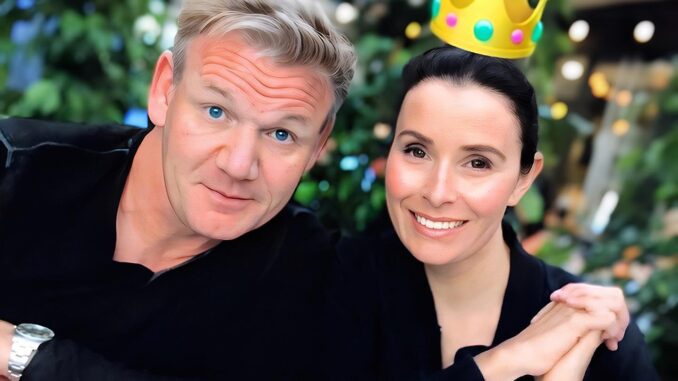
When you think of Gordon Ramsay, you might immediately picture his furious glare in Hell’s Kitchen, a raw steak flying back into the hands of a terrified chef, or his brutal honesty on Kitchen Nightmares. But beyond the entertainment value and the iconic rants, there’s a far more complex, calculated figure at work—a man who has built one of the most powerful culinary empires in the world.
Gordon Ramsay didn’t just become a world-renowned chef. He became a brand. And that brand now spans continents, cuisines, and cultures—touching everything from Michelin-starred restaurants to street food in Southeast Asia, TV studios in Los Angeles to hidden kitchens in Iceland. So how did he do it?
It all started, not surprisingly, in a kitchen.
Ramsay’s rise wasn’t overnight. He worked under some of the most formidable names in culinary history—Marco Pierre White, Albert Roux, and Guy Savoy, to name a few. These kitchens weren’t nurturing spaces—they were battlefields. Ramsay didn’t just learn technique; he learned survival. And that grit became the backbone of his future.
His first major breakthrough came in 1998, when he opened Restaurant Gordon Ramsay in London. Just three years later, it was awarded three Michelin stars—a level of acclaim that placed him among the greatest chefs in the world. For many, that might have been enough. But Ramsay wasn’t content with perfection in one kitchen. He wanted to dominate every kitchen.
And that’s exactly what he did.
Today, Gordon Ramsay operates over 35 restaurants worldwide, with concepts ranging from high-end dining to casual gastropubs. From Gordon Ramsay Steak in Las Vegas to Bread Street Kitchen in Dubai and Savoy Grill in London, every location reflects his signature: bold flavors, uncompromising standards, and elegant presentation.
But Ramsay’s true genius lies not just in culinary innovation—it lies in scalability. Many chefs are brilliant behind the stove. Ramsay is brilliant in the boardroom. He knows how to turn food into a global narrative, how to sell emotion through flavor, and how to translate authenticity into expansion.

And perhaps most impressively, he does it without diluting his brand.
Take, for example, his ventures into Asia. Rather than trying to replicate European fine dining, Ramsay embraced local influences. In Singapore and Malaysia, his restaurants celebrate native ingredients while maintaining his refined techniques. He doesn’t impose his palate—he collaborates with it. That’s a rare move for a Western chef, and it’s part of why his empire continues to grow.
But food is just one slice of his kingdom.
Gordon Ramsay is also a media powerhouse. He’s hosted and produced dozens of television shows, with Hell’s Kitchen, MasterChef, Kitchen Nightmares, and Uncharted becoming staples across the globe. These shows aren’t just entertainment—they’re powerful storytelling tools. Each one introduces millions of viewers to the world of professional cooking, while subtly reinforcing Ramsay’s core values: discipline, passion, precision, and respect.
And it works.
His shows air in over 200 countries. His YouTube channel has over 20 million subscribers. His name has become shorthand for “world-class” and “no nonsense.” Even if you’ve never eaten at one of his restaurants, you know what Gordon Ramsay stands for.
Yet, amid the jet-setting, the Michelin stars, and the screaming kitchen scenes, there’s an often overlooked side of Ramsay’s empire: his mentorship and education efforts.
Ramsay is deeply committed to developing young talent. Through programs like Future Food Stars and his appearances on MasterChef Junior, he encourages aspiring chefs to embrace creativity and rigor. He doesn’t just want them to cook—he wants them to think. To lead. To understand the weight of their role in every dish they serve.
He also founded the Gordon Ramsay Academy, where chefs at all levels—amateurs and professionals alike—can sharpen their skills. Unlike the brutal kitchens of his own past, this is a space of encouragement, discovery, and growth. It’s a sign that even Ramsay, the once-fiery kitchen warrior, understands the need for evolution.
But expansion has its challenges.
Maintaining quality across dozens of locations is no easy feat. Critics have sometimes accused Ramsay of overextending himself. Yet, somehow, his empire continues to thrive. Why? Because he’s built a team—not just of chefs, but of leaders, ambassadors, and entrepreneurs who understand his vision.
He doesn’t micromanage every sauce, but he instills a mindset: Every dish must speak. Every plate must earn its place.
And now, at 57, Gordon Ramsay is showing no signs of slowing down. His new ventures in travel television, like Uncharted, reveal a man not resting on past glory, but seeking new stories, new flavors, and new lessons. Watching him hike through the Andes, dive for shellfish in Norway, or cook over fire in Morocco, you get the sense that this man, once defined by shouting, is now driven by curiosity.
That’s the true heart of his empire—not ego, not money, not even fame—but an insatiable hunger to explore, create, and connect. Whether it’s with a fellow chef, a village elder, or a 10-year-old cooking eggs for the first time, Ramsay treats every encounter as a chance to grow.
